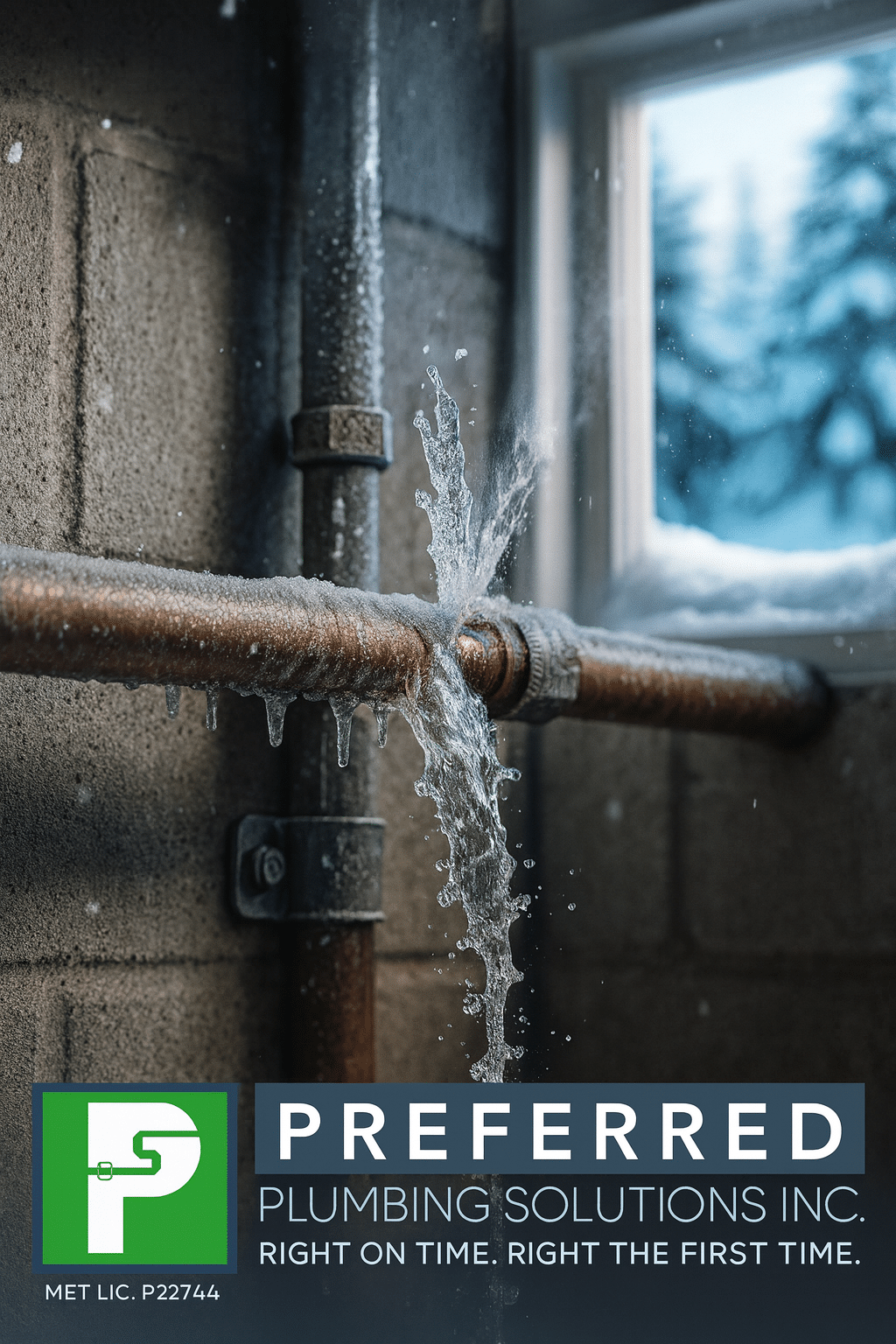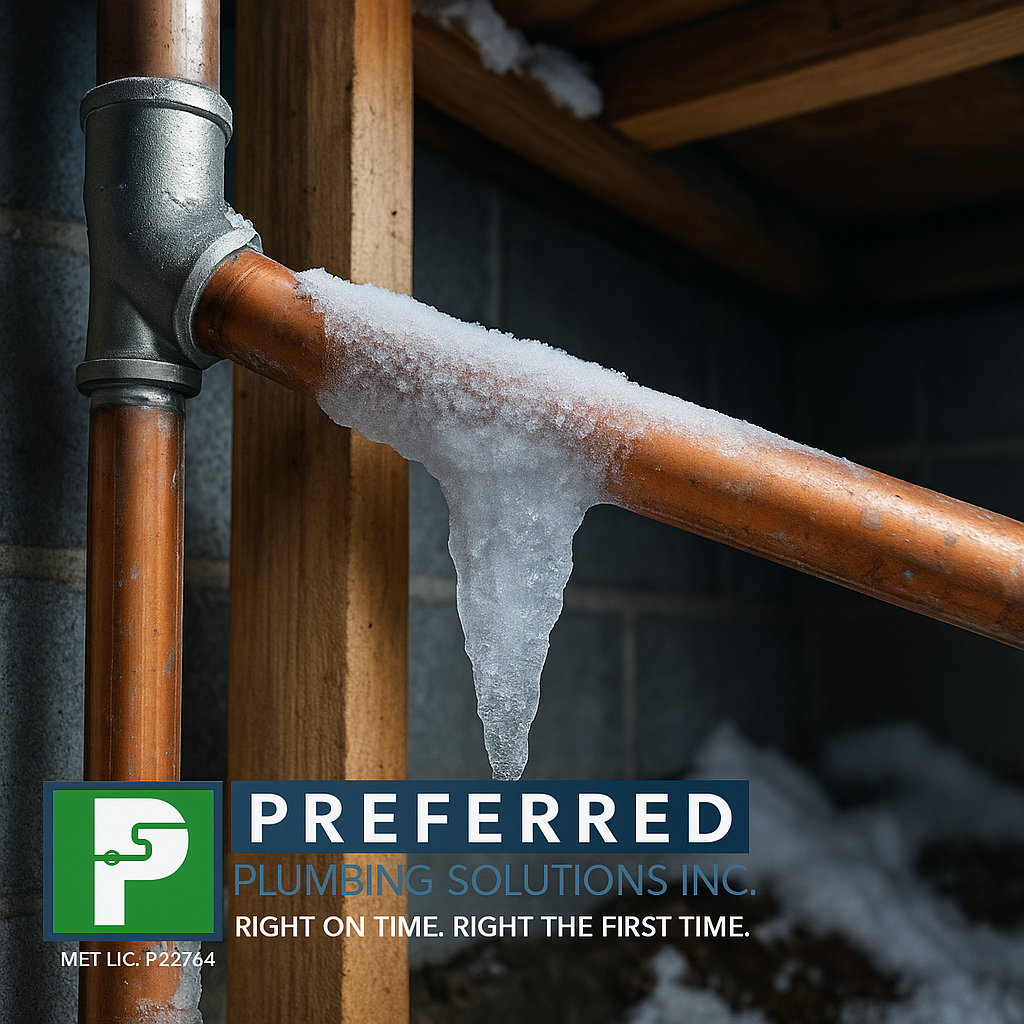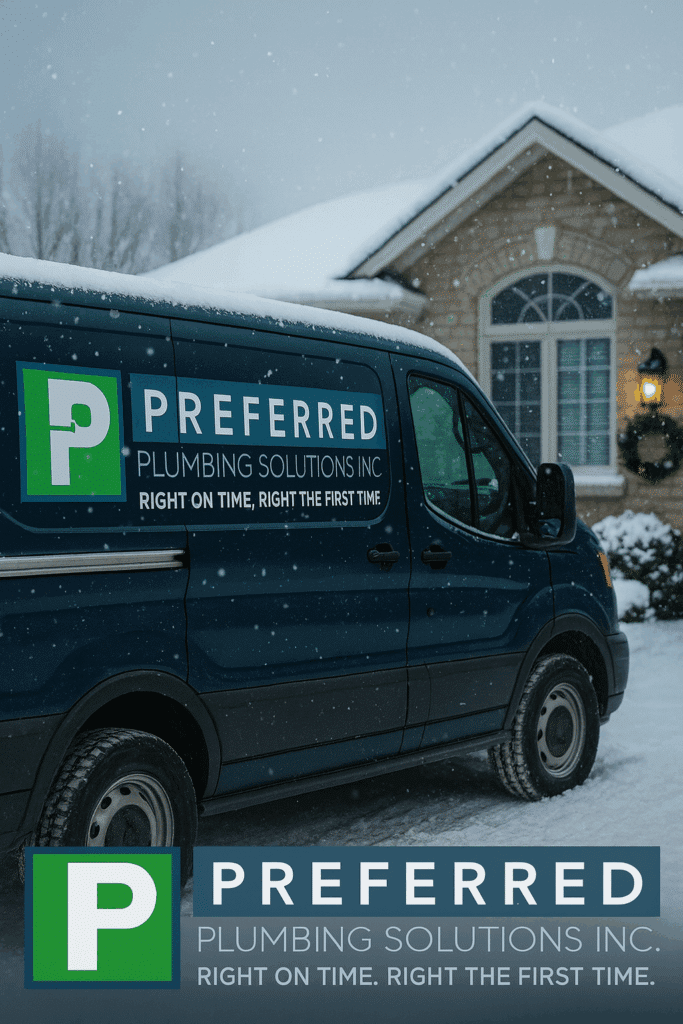Living in Ontario means real winters — the kind where the temperature drops to -25°C with wind chill, snow piles up for months, and everyone in Markham, Vaughan, Richmond Hill, and the rest of the GTA starts worrying about their pipes. If you’ve ever woken up to no water on a February morning in Unionville or dealt with a flooded basement in Thornhill after a big thaw — or had to frantically search for an emergency plumber Markham you know exactly what I’m talking about.
Every year, plumbing emergencies spike between December and March across the province. In fact, insurance claims for water damage caused by frozen or burst pipes jump nearly 300% during the coldest months in Ontario. In the City of Toronto and York Region alone, thousands of homeowners file claims for preventable winter plumbing issues that end up costing anywhere from $5,000 to $25,000 or more.
Here are the 10 most common winter plumbing problems we see every single season in Markham, Aurora, Newmarket, and throughout southern Ontario — plus practical, proven ways to stop them before they start.
1. Frozen Pipes (The #1 Winter Nightmare)
About 30% of all plumbing-related insurance claims in Canada during winter are caused by frozen pipes bursting. In older Markham neighbourhoods like Old Unionville, Cornell, or Wismer Commons, where many homes were built in the 80s and 90s, pipes in exterior walls or unheated crawl spaces are especially vulnerable.
Signs your pipes are freezing:
- Very low water pressure or strange banging noises (water hammer)
- Frost on exposed pipes
- No water coming out of the tap at all
Prevention tips:
- Leave cabinet doors under sinks open on exterior walls so warm air can circulate.
- Let faucets drip slightly during extreme cold snaps (below -20°C).
- Insulate exposed pipes with foam sleeves or heat tape — especially in garages and basements.

2. Burst Pipes After a Deep Freeze
A frozen pipe doesn’t always burst while frozen — it often happens during the thaw when ice expands and then suddenly shifts. In Vaughan and Richmond Hill, rapid temperature swings from -20°C to +5°C in 24 hours are common in January and February, and that’s exactly when burst pipes happen most.
If a pipe does burst, shut off your main water valve immediately (every homeowner should know where this is — usually near your water meter or where the main line enters the house).
3. Sump Pump Failure During Spring Melt
March break week is notorious in York Region. The snow melts, the ground is still frozen, and all that water has nowhere to go except your basement. A failed sump pump during this time can lead to thousands in damage in just hours.
Test your sump pump monthly during winter by pouring a bucket of water into the pit — it should kick on automatically. Consider a battery backup pump if you live in low-lying areas like Box Grove or Berczy Village.
4. Clogged or Frozen Outdoor Drains and Eavestroughs
Ice damming on roofs causes water to back up under shingles, but frozen outdoor drains make it worse. Downspouts that empty right beside the foundation (common in many Markham semi-detached homes) can create ice buildup that pushes water back into the basement.
Install heated cables in eavestroughs and make sure downspouts extend at least 6 feet away from the foundation.
5. No Hot Water (Frozen Water Heater Lines or Pilot Issues)
Tankless water heaters and high-efficiency models are great — until the condensate line freezes. This is increasingly common in newer Markham developments like Cornell Village and Angus Glen where tankless units are standard.
Wrap the condensate line with heat tape and make sure it’s sloped properly to drain.
6. Toilet and Drain Backups from Tree Roots Seeking Warmth
Tree roots don’t sleep in winter. They actually grow faster when seeking warmth and moisture from your sewer line. Combine that with slow-moving waste water in cold pipes, and you’ve got the perfect recipe for a Christmas Eve backup.
Schedule a sewer camera inspection every 3–5 years if you have mature trees near your sewer lateral.
7. Washing Machine Supply Line Failures
Those cheap rubber hoses behind your washing machine? They fail all the time in winter due to cold temperatures making them brittle. A burst washing machine hose can pump 500 gallons per hour into your home.
8. Outdoor Faucets (Hose Bibs) That Weren’t Properly Winterized
Leaving a garden hose attached even once during freezing weather can split the pipe inside your wall. Frost-free sillcocks help, but only if you remember to disconnect hoses and drain them.
9. Ice Maker Line Freezes in the Fridge
Happens constantly in side-by-side fridge models. The tiny water line running to the ice maker freezes solid, then bursts when it thaws. You’ll know when you open the freezer and everything is covered in ice.
Turn off the ice maker when temperatures drop below -15°C for extended periods.
10. Sewer Line Freeze (The Rare but Catastrophic One)
In extreme cold with little snow cover, sewer lines can actually freeze solid — especially in rural areas of York Region or older parts of Stouffville. This is rare in the GTA but does happen during polar vortex events.
The only real prevention is good insulation and keeping some water running during extreme cold.

Year-Round Prevention Checklist for Ontario Homeowners
- Keep your thermostat at 15°C or higher even when away
- Seal cracks around windows, doors, and where pipes enter the home
- Clean eavestroughs in late fall
- Have your furnace and HRV system serviced annually
- Know where your main water shut-off is (and make sure it works!)
- Consider a smart water leak detector (many insurance companies now give discounts for these)
Being proactive in November can save you thousands (and a lot of stress) in February.
FAQ – Winter Plumbing Questions Ontario Homeowners Ask Most
What should I do if I have no water on a cold morning?
Open cabinet doors, set a space heater (safely) near the suspected frozen section, and use a hair dryer on low to gently warm the pipe. Never use an open flame. If you can’t locate the freeze quickly, call an emergency plumber in Markham or your local area right away — time is critical.
Is it safe to leave taps dripping overnight?
Yes, and it’s actually recommended by most Ontario municipalities during extreme cold alerts. A slow drip relieves pressure in the system and keeps water moving.
Does home insurance cover frozen pipe damage?
Usually yes, but only if you took “reasonable care” to prevent it (i.e., kept heat on, pipes insulated, etc.). If you went south for two months and turned the heat off, you’re likely not covered.
When should I call a professional instead of trying to fix it myself?
Any time you suspect a pipe has already burst, you smell gas, or you can’t locate/find the issue quickly. Water damage escalates fast — it’s always cheaper to call early than deal with mold remediation later.
Stay warm out there, Ontario — winter is coming (whether we like it or not).

